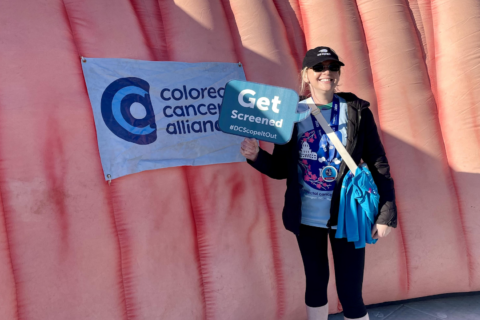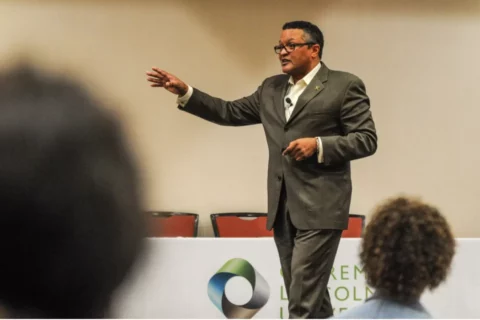With the new year just around the corner, some D.C.-area jurisdictions have new laws on the books. Here’s a brief compilation of laws and regulations slated to go into effect on Jan. 1, 2021, or shortly thereafter.
Virginia
Holding a cellphone while driving: It’s illegal to hold a cellphone while driving in Virginia starting Jan. 1. The previous law only prohibited holding a phone while driving in a work zone and reading or typing an email or text while driving.
The first offense will get you a $125 fine. Additional offenses will cost you $250. You’ll also pay the higher fine if you’re caught breaking the law in a highway work zone.
One thing to note: If you use headphones to talk hands-free on your cellphone, Virginia law only allows drivers to have an earbud in one ear.
Exceptions to the new law include using your phone to report an emergency, and using your phone while legally parked or stopped. There are also exemptions for emergency crews who are on the job.
Similar bans are already in place in D.C. and Maryland.
Marijuana scent stop and search: Effective March 1, law enforcement will no longer be able to “search or seize any person, place, or thing solely on the basis of the odor of marijuana.” Earlier in 2020, lawmakers decriminalized possession of up to one ounce of marijuana for personal use.
Minimum wage increase: The minimum wage increase to $9.50 per hour will go into effect on May 1. The next bump, to $11 per hour, comes Jan. 1, 2022. A year later, it will rise to $12. Eventually, it will go to $15 per hour by 2026 as long as the legislature approves it.
Concealed carry permit adjustment: Gun owners applying for a concealed carry permit can no longer take a firearms safety course online or by video. The applicant still has to complete a course conducted by a state-certified or National Rifle Association-certified instructor.
Cap on insulin costs: Health Insurance companies can’t charge Virginians more than $50 for a 30-day supply of insulin.
Surprise out-of-network health care costs: Starting Jan. 1, when someone needs emergency services, their insurance cannot be billed more than a “commercially reasonable amount” for a non-network provider. This prevents patients from having to deal with high out-out-network costs applied to a service provided within their insurance network.
Skill game phaseout: By July 1, games of skill, which have a different definition from games of chance such as slot machines, will no longer be exempt from Virginia’s ban on gambling. A large percentage of the revenue gained from skill games, however, has been diverted to the state’s COVID-19 relief fund.
Maryland
Minimum wage increase: Minimum wage in Maryland is rising from $11 an hour to $11.75 an hour, effective Jan. 1, for businesses with 15 or more employees. For businesses with 14 or fewer, it’s rising from $11 an hour to $11.60 an hour. Maryland state wage minimums will be applied to Montgomery and Prince George’s counties, where it previously didn’t.
Plastic bag fee in Baltimore: If you’re shopping without bringing your own bag in Baltimore, expect to be charged five cents each time you use one starting Jan. 13. One cent will be claimed by the city for efforts to mitigate plastic bags.
Prostate cancer screening: Health care providers can’t charge patients copays or deductibles for prostate cancer screenings.
Impounded vehicles in Prince George’s County: Starting Jan. 4, owners will have to pay outstanding parking violations and traffic citations before they can retrieve their vehicle.
In vitro fertilization: The bill specifies the coverage qualification requirements for unmarried patients and alters the requirements for married patients seeking to receive IVF. Generally, the state makes qualification for coverage easier for patients who have not been able to get pregnant during sustained periods of unprotected sex and after multiple attempts using artificial insemination.
Scooter contact information: Low-speed motor and electric scooters must have a tactile display on each unit so a person who is blind or has low vision may contact the company.
DC
Estate tax increase: Mayor Muriel Bowser signed the Estate Tax Adjustment Amendment Act of 2020 in August. It lowers the exemption amount from roughly $5.7 million to $4 million. In other areas close to D.C., the first $5 million is often exempt from taxes.
Extended foam ban: The District’s Styrofoam ban first went into effect Jan. 1, 2016; now, it’s being amended. The new requirements ban retailers from selling foam food service ware; foam storage containers, such as coolers and ice chests, and foam loose-fill packaging material, commonly known as packing peanuts.
New energy efficiency standards: D.C.’s Department of Energy and the Environment is setting new environmental standards for large buildings (both private and D.C.-owned, 10,000 square feet and over) in the city in an effort to reduce greenhouse gas emissions and energy consumption by 50% by 2032. The first set of new standards goes into effect Jan. 1; additional standards will be added every six years.
Telemedicine record rules: Medicaid health care providers in the District will now be required to “maintain complete and accurate beneficiary records of services provided (not to include videos)
for each beneficiary that document the specific health care services provided to each beneficiary for a period of ten (10) years or until all audits are completed, whichever is longer,” the Department of Health Care Finance said in a memo.
WTOP’s Michelle Basch and WTOP’s news partner NBC Washington contributed to this report.









